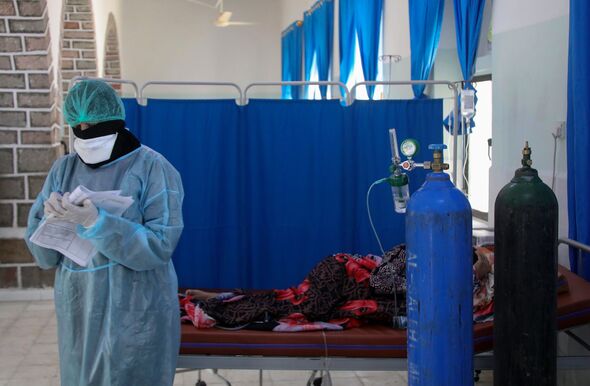A popular Spanish city renowned for its beautiful architecture, monuments and tapas scene has recorded its first death of a deadly virus.
Concerns are mounting in Spain over the spread of the West Nile Virus, a mosquito-borne virus that has been making its way round the European country.
And now Seville has recorded its first fatality bringing the total death count in Andalucia to eight.
The Junta de Andalucía’s Ministry of Health reported on Monday that eight new cases of West Nile Virus have been confirmed this week in people in the Seville municipalities of La Campana, Los Palacios y Villafranca, Coria del Río and Mairena del Aljarafe.
There is also one person in the Cordoba municipality of Fernán Núñez, and another in Rosal del Rosal in Huelva, Los Palacios y Villafranca, Coria del Río and Mairena del Aljarafe, and in the Cadiz municipalities of Medina Sidonia and Vejer de la Frontera.
It comes after the West Nile Virus is thought to have claimed more lives in Andalucia last week after two more fatalities were reported.
Health authorities confirmed a man and a woman, both from Jaen who were admitted to the Reina Sofía University Hospital in Cordoba, had passed away.
Whilst last weekend Cadiz, a popular expat hotspot, confirmed its first case of a deadly disease.
And now the city has started to introduce tougher measures against the deadly virus. This is likely to include installing more mosquito traps and raising awareness among the local population. Additional traps have also been installed in Jaén and Cordoba but there are not yet available.
Concerns about the rapid spread of the virus has sparked fear among residents, particularly in rural areas where mosquito populations are higher.
Councillor Begoña Medina is urging Malaga city councillor Penélope Gómez to provide more information on the mosquito that transmits the West Nile virus.
West Nile Virus Symptoms
About 1 in 5 people who are infected develop a fever with other symptoms such as headache, body aches, joint pains, vomiting, diarrhoea, or rash, according to the Centers for Disease Control and Prevention.
About 1 in 150 people who are infected develop a severe illness affecting the central nervous system.
Symptoms of severe illness include high fever, headache, neck stiffness, stupor, disorientation, coma, tremors, convulsions, muscle weakness, vision loss, numbness and paralysis, this can occur in people of any age.
However, people over 60 years of age are at greater risk for severe illness if they are infected (1 in 50 people). People with certain medical conditions, such as cancer, diabetes, hypertension, kidney disease, and people who have received organ transplants, are also at greater risk.
